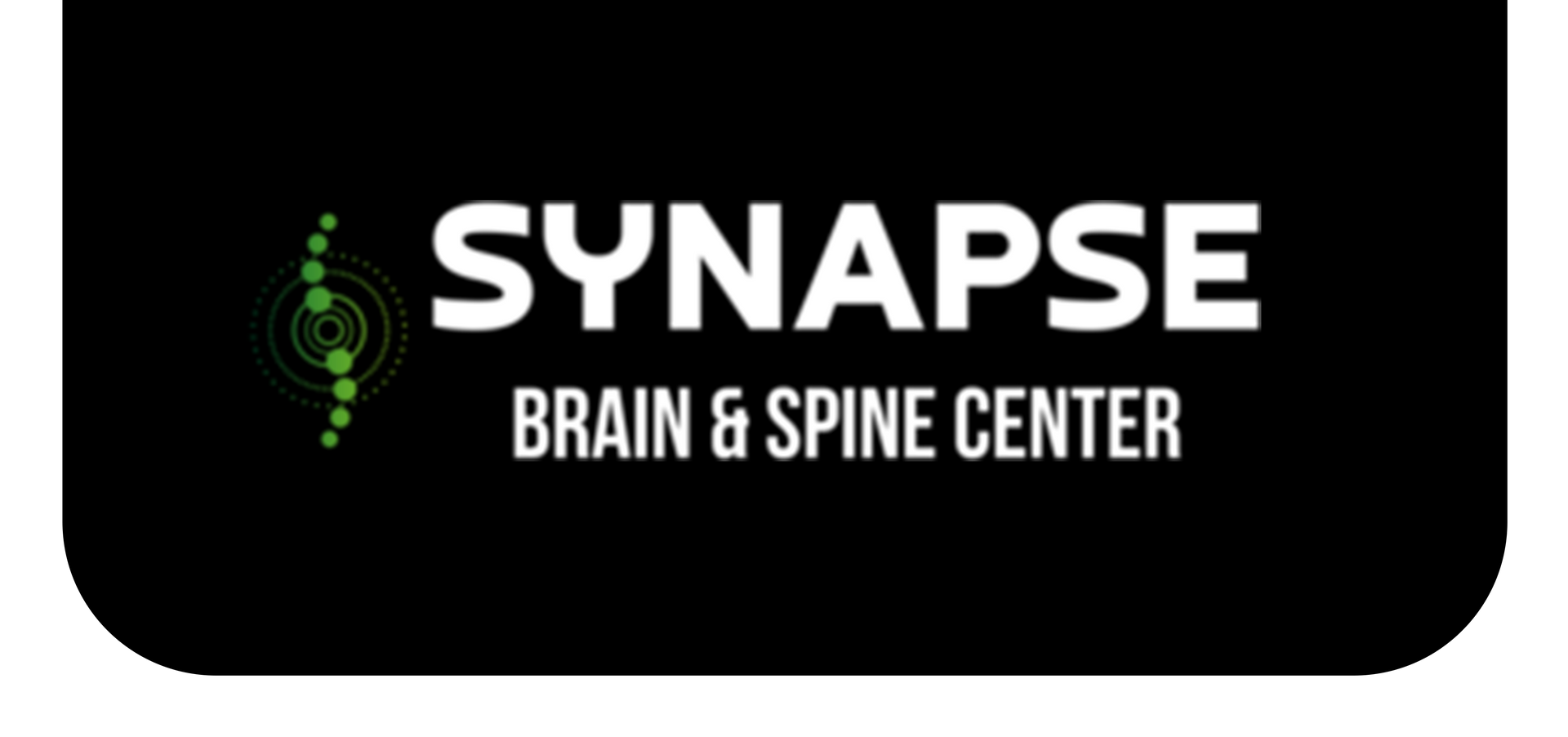Workers' Compensation
Request Call Back
Workers’ Compensation Injuries (On-the-Job Injury Recovery)
At Synapse Brain & Spine Center, we specialize in helping individuals recover from workplace injuries through advanced diagnostics, neurological rehabilitation, and physical therapies. If you've been injured on the job—whether through acute trauma or repetitive strain—we offer comprehensive care that supports your healing, return to work, and long-term well-being. Our team is experienced in working with workers’ compensation insurance and can assist with all necessary documentation and reporting.
Understanding Work-Related Injuries
On-the-job injuries can involve both physical trauma and neurological dysfunction, especially when caused by:
- Slips, trips, or falls
- Heavy lifting or repetitive motion
- Machinery accidents
- Motor vehicle accidents (during work duties)
- Chronic strain from poor ergonomics
- Stress-related conditions and overexertion
Common workplace injuries we treat include:
- Neck and back pain (disc injuries, sciatica, sprains)
- Concussions and post-concussion symptoms
- Joint injuries (shoulder, knee, hip)
- Nerve pain (numbness, tingling, weakness)
- Muscle strains and overuse injuries
- Cognitive issues (brain fog, memory problems)
Our goal is to relieve pain, restore function, and help you safely return to work through personalized, non-invasive therapies.
Recommended Diagnostics for Workers’ Comp Injuries
We perform a thorough evaluation to identify the full extent of your injuries—both physical and neurological—so we can tailor your recovery plan for optimal results.
1. Comprehensive Consultation
We begin with a detailed review of your injury, job demands, symptoms, and medical history. We also help coordinate insurance approvals and workers’ comp case documentation.
2. QEEG Brain Mapping (Quantitative EEG)
For head injuries or post-concussion symptoms, we use QEEG to evaluate brainwave function. Common findings include:
- Brain fog, headaches, sleep disturbances
- Memory and focus issues after a concussion
- Mood changes or emotional dysregulation
Why it matters:
QEEG guides neurofeedback therapy to improve brain function, reduce cognitive symptoms, and support recovery from mild TBI.
3. Vestibular Ocular Motor Screening (VOMS)
Work-related head or neck injuries often cause:
- Dizziness or balance issues
- Visual tracking problems
- Motion sensitivity
Why it matters:
VOMS allows us to design vestibular and balance therapy to improve spatial awareness, reduce fall risk, and support safe return to work.
4. Neurocognitive Assessment
We assess:
- Attention, memory, and processing speed
- Executive function (planning, multitasking)
- Impact of injury on cognitive abilities
Why it matters:
Helps document cognitive limitations for work accommodations and guides rehabilitation planning.
5. Neurological / Orthopedic Examination
We examine:
- Muscle strength, flexibility, and joint range of motion
- Reflexes, nerve sensitivity, and spinal alignment
- Functional movements relevant to job tasks
Why it matters:
Identifying physical limitations allows us to target therapy to improve strength, mobility, and pain relief—critical for returning to job duties.
6. Optional Lab Testing
If chronic symptoms persist, we may test for:
- Inflammatory markers and oxidative stress
- Nutrient deficiencies affecting healing
- Hormonal imbalances from chronic stress
Why it matters:
Optimizing internal recovery factors can reduce long-term pain, fatigue, and cognitive dysfunction.
Recommended Treatment for Work Injuries
We offer a full suite of non-invasive therapies tailored to your injury and job demands—focused on pain relief, tissue healing, brain function, and physical restoration.
1. QEEG-Guided Neurofeedback Therapy
Improves brain regulation after head injury or chronic stress.
Helps with:
- Brain fog, sleep, anxiety, attention, cognitive performance
2. Hyperbaric Oxygen Therapy (HBOT)
Accelerates healing by increasing oxygen delivery to tissues.
Helps with:
- Concussion, soft tissue injuries, fatigue, inflammation, chronic pain
3. Transcranial Photobiomodulation (tPBM / Brain Laser Therapy)
Supports brain energy and recovery after TBI or chronic stress.
Helps with:
- Cognition, mood, pain modulation, energy, recovery from TBI
4. Extracorporeal Shockwave Therapy (ESWT)
Uses pulsed acoustic waves to stimulate soft tissue repair.
Helps with:
- Back and joint pain, muscle tension, tendonitis, repetitive strain injuries
5. Extracorporeal Magneto transduction Therapy (EMTT)
Stimulates deep tissue healing using magnetic fields.
Helps with:
- Chronic pain, joint inflammation, overuse injuries
6. Class 4 Laser Therapy
Delivers therapeutic light energy for pain relief and healing.
Helps with:
- Nerve pain, soft tissue injuries, inflammation, post-surgical healing
7. Chiropractic Care and Neurological Rehabilitation
Restores spinal alignment and nerve function for optimal recovery
Helps with: mobility, pain relief, posture, balance, and return-to-work readiness.
Workers’ Compensation Support
We understand the workers’ compensation process and provide:
- Timely documentation for your insurance and case manager
- Detailed reports on diagnosis, treatment, and functional status
- Assistance with return-to-work planning and job accommodation recommendations
Get Back to Work—Stronger and Pain-Free
At Synapse Brain & Spine Center, we’re committed to helping you recover safely, completely, and efficiently from your work-related injury. Our goal is not only to relieve your pain, but to help you regain your function and confidence so you can return to work and enjoy life again.
👉 Schedule your workers’ comp consultation today and let’s get started on your path to recovery.


Share On: